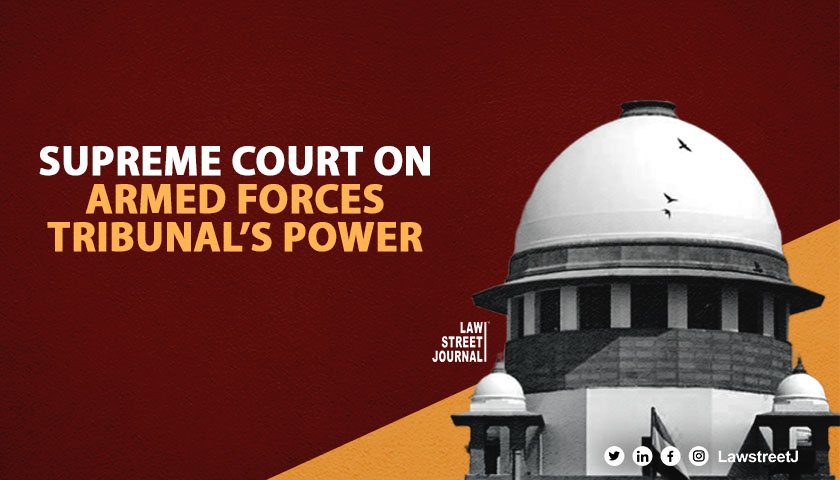NEW DELHI: The Supreme Court has said the Armed Forces Tribunal is a quasi judicial body, which is not empowered to direct the government to formulate a policy for promotion in a particular manner affecting the services of the personnel as making a policy is not in the domain of the judiciary.
A bench of Justices Abhay S Oka and Sanjay Karol said the tribunal is also a quasi-judicial body, functioning within the parameters set out in the governing legislation.
"Although, it cannot be questioned that disputes in respect of promotions and/or filling up of vacancies is within the jurisdiction of the tribunal, it cannot direct those responsible for making policy, to make a policy in a particular manner," the bench said.
In its December 14 judgment, the court quashed and set aside an order by the Armed Forces Tribunal, Principal Bench, Delhi directing the Centre to permit Air Commodore N K Sharma to function as JAG (Judge Advocate General) (Air) till such time that the formulation of a policy for filling up the possession of AVM (Air Vice Marshal) takes place, and giving him an opportunity to be considered under such a policy.
The court said that the respondents challenge was barred at first instance, since he participated in the promotion board of 2015 and only challenged the non-formation of a policy for filling up the vacancy of AVM JAG (Air), finding himself to be unsuccessful in securing a promotion.
The Union government said the direction was against public policy as it would allow the officer to continue in service beyond the age of superannuation, i e, 57 years. It also said the tribunal could not direct that a person should be considered for promotion in particular manner or in terms of a new policy, framed upon such direction.
The officer, for his part, said the direction is not against the proposition of law that a person does not have the right to be promoted but has the right to be considered for promotion.
In view of the Armed Forces Tribunal Act, 2007, the bench said legislature has laid out in considerable detail, its functioning and for the purposes of adjudication of dispute before it.
The bench also said it has been observed time and again that a court cannot direct for a legislation or a policy to be made.
"It only stands to reason that a tribunal functioning within the strict boundaries of the governing legislation, would not have the power to direct the formation of a policy. After all, a court in Writ jurisdiction is often faced with situations that allegedly fly in the face of fundamental rights, and yet, has not been entrusted with the power to direct such formation of policy," the bench said.
The bench also said it only stands to reason then, that, a tribunal subject to the High Courts jurisdiction under Article 226, cannot be permitted by law, to direct the framing of policy by the government.
Justice Karol, who authored the judgment on behalf of the bench, highlighted that it has been observed time and again that a court cannot direct for a legislation or a policy to be made.
Referring to the apex courts judgment in 'Union of India vs Ilmo Devi and others' (2021), the bench said, After all, a court in writ jurisdiction is often faced with situations that allegedly fly in the face of fundamental rights, and yet, has not been entrusted with the power to direct such formation of policy".
The bench said that a tribunal subject to the high courts jurisdiction under Article 226, cannot be permitted by law, to direct the framing of policy by the government.
















